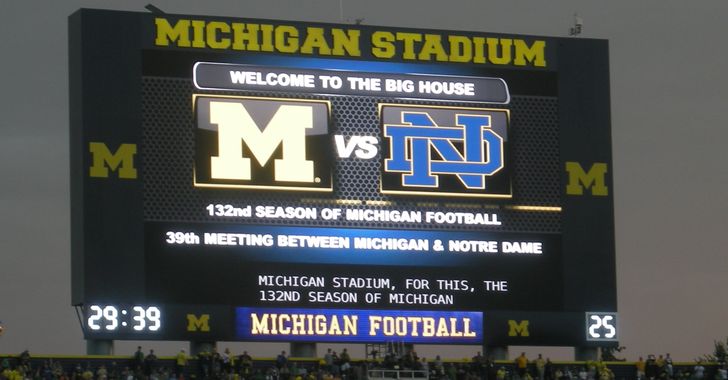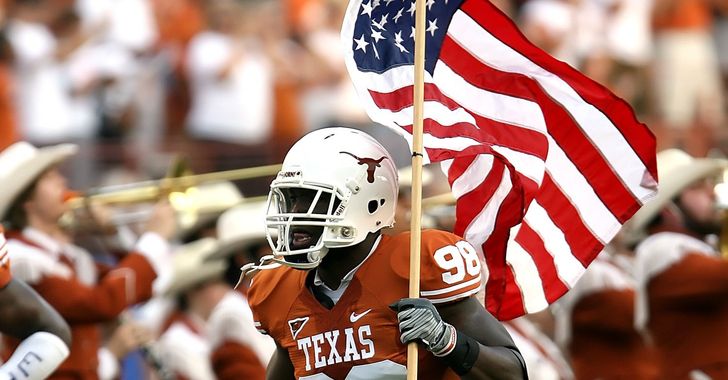To start, if you haven't read Mueller's Report yet, do it. A full version is available online, print versions can be found for pretty cheap if that's more your style.
When you read the report, one thing will be made very clear: Trump absolutely and emphatically attempted to obstruct justice. Despite constant claims from Trump that the report has "nothing," anyone who actually read the report will tell you otherwise. To supplement the report, Mueller recently testified in front of Congress on his findings.
While he also discussed the continued attacks from Russia on our electoral system, Mueller also confirmed the damning evidence against Trump. In an exchange with Rep. Ken Buck (R), Mueller was asked: "You believe that you could charge the president of the United States with obstruction of justice after he left office?"
Mueller emphatically answered "Yes."
If Mueller could not charge Trump with obstruction now (thanks to an Office of Legal Counsel opinion saying it would be unconstitutional), but he could be charged when he leaves office, that means only one thing: Trump obstructed justice and, therefore, broke the law.
Don't believe me? Here's the proof.
Obstruction of justice
The U.S. Code that deals with obstruction of justice, in this case, is 1512(c)(2). 1512(c) states:
(c) Whoever corruptly—
(1) alters, destroys, mutilates, or conceals a record, document, or other object, or attempts to do so, with the intent to impair the object's integrity or availability for use in an official proceeding; or
(2) otherwise obstructs, influences, or impedes any official proceeding, or attempts to do so,
shall be fined under this title or imprisoned not more than 20 years, or both.
As stated in Mueller's report, "[Section 1512(c)(2)] captures corrupt conduct, other than document destruction, that has the natural tendency to obstruct contemplated as well as pending proceedings." Furthermore, the obstruction of justice falls into three elements:
Three basic elements are common to most of the relevant obstruction statutes: (1) an obstructive act; (2) a nexus between the obstructive act and an official proceeding; and (3) a corrupt intent. See, e.g., 18 U.S.C. §§ 1503, 1505, 1512(c)(2). We describe those elements as they have 'been interpreted by the courts. We then discuss a more specific statute aimed at witness tampering, see 18 U.S.C. § 1512(b), and describe the
requirements for attempted offenses and endeavors to obstruct justice , see 18 U.S.C . §§ I 503, 1512(c)(2).
These three elements (obstructive act, connection between the act, and an official proceeding, and corrupt intent) is the framework in which Mueller analyses each of the 11 events that constituted possible obstruction of justice. After analyzing each of these 11 events it is incredibly clear that Trump's actions neatly fit each of these three elements.
Obstructive act
An obstructive act "reaches all corrupt conduct capable of producing an effect that prevents justice from being duly administered, regardless of the means employed."
The obstructive act committed by Trump occurred during the drama surrounding Michael Cohen's agreement to work with the Special Counsel's investigation. Before this deal, Trump was a vocal supporter of Cohen and constantly urged him to "not flip." In April, he voiced this support in a series of attacks on the New York Times, saying "Michael is a businessman for his own account/lawyer who I have always liked & respected. Most people will flip if the government lets them out of trouble, even if it means lying or making up stories. Sorry, I don't see Michael doing that despite the horrible Witch Hunt and the dishonest media!" In private, Trump continued this support, telling him to "stay strong" and relaying messages to him that said "the President loves you" (Mueller Report, Volume II pg. 154).
This support quickly ended after Cohen entered the plea deal with the government. Again using Twitter as his platform, Trump began saying Cohen had done "TERRIBLE, unrelated to Trump, things having to do with fraud, big loans, Taxis, etc." and accused him of "lying to reduce his jail time." Furthermore, Trump called Cohen a "rat" and "a weak person" and further accused Cohen's family of committing crimes.
When Cohen was helping Trump, he was a good guy. When Cohen was helping the government, he became persona non grata. These actions were deliberately made in order to protect Trump by preventing Cohen from testifying against him and, therefore, preventing justice from being duly administered. Mueller words this conclusion perfectly:
The evidence concerning this sequence of events could support an inference that the President used inducements in the form of positive messages in an effort to get Cohen not to cooperate, and then turned to attacks and intimidation to deter the provision of information or undermine Cohen's credibility once Cohen began cooperating.
This is an obstructive act, satisfying one of the three elements of obstruction of justice.
Nexus to an official proceeding
A nexus to an official proceeding is a connection to a "pending judicial or grand jury proceeding."
Two events show a strong connection between Trump's actions and pending judicial proceedings. The first is Trump's firing of F.B.I. Director James Comey. "[A]t the time the President fired Comey, evidence indicates the President knew that Flynn was still under criminal investigation and could potentially be prosecuted, despite the President's February 14, 2017 request that Comey "let[] Flynn go" (Mueller Report, Volume II pg. 75). Trump was well aware that Flynn's connections to foreign governments were being investigated, and firing the F.B.I. Director could be seen as an attempt to end that investigation.
The second is when Trump asked White House Counsel Don McGahn to fire Special Counsel Robert Mueller and, therefore, end the investigation. This one is, and should be, incredibly obvious. Trump knew he was being investigated at the time of attempt: June 17th, 2017. As Mueller put it, "Substantial evidence indicates that by June 17, 2017, the President knew his conduct was under investigation by a federal prosecutor who could present any evidence of federal crimes to a grand jury" (Mueller Report, Volume II pg. 89). Furthermore, the President tweeted on June 16th -- the day before he told McGahn to fire Mueller -- "I am being investigated for firing the FBI Director by the man who told me to fire the FBI Director! Witch Hunt[.]"
Trump knew he was being investigated and attempted to stop the investigation by firing the people in charge of it. I don't know how much more connected to an official proceeding you can get than that. That also satisfies two out of the three elements for obstruction of justice.
Corrupt intent
Corrupt intent is defined as "doing something with the full knowledge that it is illegal." Mueller states it "means acting 'knowingly and dishonestly' or 'with an improper motive" (Mueller Report, Volume II pg 10).
This one is sadly too easy to write about, numerous actions taken by the president can be considered corrupt. One of the most glaring examples is the event described above: Trump's attempts to fire Mueller. As the Report states: "Substantial evidence indicates that the president's attempts to remove the Special Counsel were linked to the Special Counsel's oversight of investigations that involved the president's conduct" (Mueller Report, Volume II pg. 89). Trump attempted to fire Mueller because he knew he was being investigated. That's corrupt.
Furthermore, Trump knew he should not have asked McGahn to remove the Special Counsel. Again, Mueller covers this topic extensively:
There also is evidence that the President knew that he should not have made those calls to McGahn. The President made the calls to McGahn after McGahn had specifically told the President that the White House Counsel's Office-and McGahn himself-could not be involved in pressing conflicts claims and that the President should consult with his personal counsel if he wished to raise conflicts. Instead of relying on his personal counsel to submit the conflicts claims, the President sought to use his official powers to remove the Special Counsel. And after the media reported on the President's actions, he denied that he ever ordered McGahn to have the Special Counsel terminated and made repeated efforts to have McGahn deny the story, as discussed in Volume II, Section II.I, infra. Those denials are contrary to the evidence and suggest the President's awareness that the direction to McGahn could be seen as improper.
So many other actions also fall into this element: Trump's attempt to get Sessions to limit the Special Counsel's investigation to future election interference, preventing investigation of the president's campaign, Trump's attempt to have Sessions unrecuse from the investigation, Trump asking McGahn to lie about him asking McGahn to remove the Special Counsel, and, lastly, his conduct with Michael Cohen.
These corrupt acts satisfying the third — and final — element of obstruction of justice. Trump broke the law. It's time to impeach him for it.









 Photo by
Photo by 









































